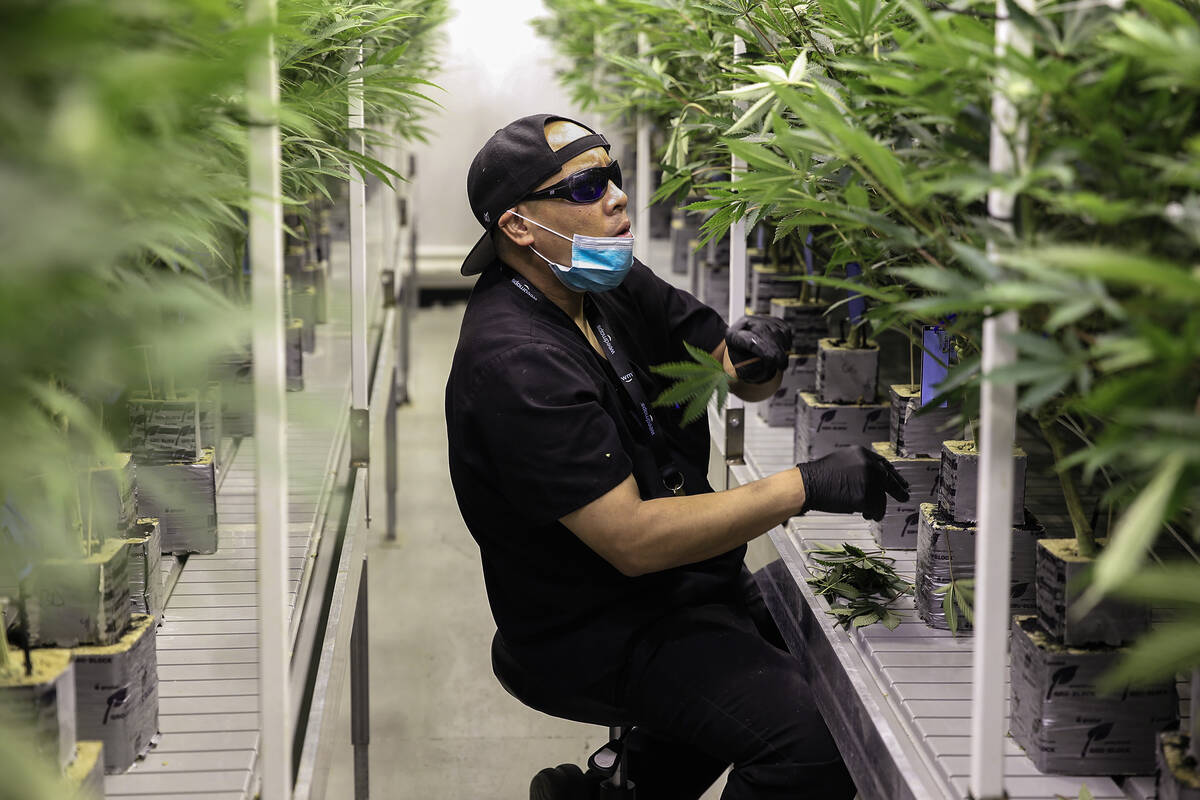Nevada cannabis businesses and consumers could likely enjoy lower costs under a federal proposal to reclassify marijuana as a less dangerous drug, according to state cannabis experts.
The U.S. Drug Enforcement Administration will move to reschedule marijuana from Schedule I – a category reserved for drugs with no accepted medical use – to Schedule III, a category of drugs with recognized medical uses and a lower potential for dependency and abuse, according to a Tuesday report by the Associated Press.
The change would not legalize cannabis on the federal level, however.
The likely rescheduling, which must first pass through a lengthy federal rulemaking process before becoming a final rule, is a “huge deal” for the industry, Nevada Cannabis Association Executive Director Layke Martin said.
The biggest impact of rescheduling would come in the form of tax relief.
Currently, state cannabis businesses pay a tax rate of approximately 80 percent due to a specific federal tax code. Rescheduling would make that provision no longer apply to those businesses, which could have a “huge” economic impact on cannabis businesses, according to Martin.
“In the long term, it will impact the prices on products as well,” Martin said. “Lower cost of business translates into lower prices for cannabis.”
And that change could potentially save “a lot” of locally owned cannabis businesses, according to University of Nevada, Las Vegas Cannabis Policy Institute Director Riana Durrett.
Rescheduling, however, won’t likely have other impacts outside of increased profitability for businesses, said Durrett, who also serves as the vice chair of the Cannabis Compliance Board.
The state also won’t likely see any immediate operational changes, partly because cannabis will remain a controlled substance on the federal level, Layke said.
In February, a state subcommittee focused on studying the possible effects of federal rescheduling on Nevada’s cannabis industry concluded in a report that the move would not make significant changes to how cannabis is regulated in Nevada because it would still be classified as a controlled substance, according to the CCB.
CCB Chair Adriana Guzmán Fralick and Executive Director James Humm said in a joint statement Wednesday that the agency is monitoring potential changes by the DEA.
“The Board and agency are prepared to work with industry and the legislature to navigate any policy changes that may impact the State market. The CCB will continue to ensure regulation in licensing and operations to protect public health and safety,” Guzmán Fralick and Humm said in the statement.
The change in federal policy may not mean much to the everyday cannabis consumer, but it’s a move in the right direction, Martin said.
“I think what this signifies is that we are moving in the right direction regarding the federal government’s view of cannabis,” Martin said. “This is all incremental change, but it’s still a change that’s a step in the right direction.”
The DEA’s move follows a recommendation by the U.S. Health and Human Services Department to reschedule marijuana and after President Joe Biden asked the department and Attorney General Merrick Garland to evaluate how the drug is classified.
Contact Taylor R. Avery at TAvery@reviewjournal.com. Follow @travery98 on X.

